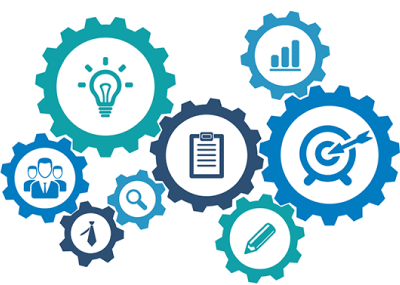Biao Teng GM: Insights & Trends
Explore the latest insights and trends in general news and information.
Speed Demons: The Secret Life of Fast Websites
Uncover the secrets behind lightning-fast websites and learn how speed can supercharge your success. Don't let your site lag behind!
The Importance of Speed: Why Fast Websites Win in Today's Digital Landscape
In today’s digital landscape, website speed is more crucial than ever. Research shows that users expect a web page to load in two seconds or less; if it takes longer, they are likely to abandon it. A fast website not only enhances user experience but also significantly improves conversion rates and customer satisfaction. In fact, a 1-second delay in page response can result in a 7% reduction in conversions. This highlights the importance of optimizing your site’s speed to retain visitors and maximize your business potential.
Furthermore, search engines like Google are placing increasing emphasis on site speed as a ranking factor. Websites that load faster are more likely to rank higher in search engine results pages (SERPs), leading to increased visibility and traffic. To maintain a competitive edge, it's essential to regularly assess and improve your site's performance through techniques such as image optimization, minimizing HTTP requests, and leveraging browser caching. By prioritizing speed, you not only cater to your users' needs but also align with search engine algorithms, ensuring your website remains relevant and accessible.

Top 10 Tips to Optimize Your Website's Speed for Better User Experience
Website speed is crucial for enhancing the user experience and improving SEO rankings. A slow-loading website can lead to high bounce rates, ultimately harming your site's visibility and credibility. To mitigate this issue, here are the top 10 tips to optimize your website's speed:
- Optimize images: Compress and resize images to reduce their load times without sacrificing quality.
- Minimize HTTP requests: Limit the number of elements on your page to decrease the number of requests made to the server.
- Use browser caching: Leverage caching to store frequently accessed files locally on a user's device.
- Enable Gzip compression: Use Gzip to compress your website files, which can significantly reduce their size.
- Reduce server response time: Invest in quality hosting and regularly monitor your site's performance to enhance server speed.
- Minify CSS and JavaScript: Remove unnecessary spaces and comments from your code to streamline it.
- Use a Content Delivery Network (CDN): Distribute your content globally, ensuring faster load times for users regardless of their location.
- Optimize your code: Regularly check for and fix any bloated code that may be affecting your load times.
- Limit external embedded media: Only use essential external resources to avoid excessive loading times.
- Keep your website updated: Regularly updating your CMS, themes, and plugins can improve performance and security.
Is Your Website Speed Hurting Your SEO? Key Insights and Solutions
In today's digital landscape, website speed plays a pivotal role in determining your site's overall performance and visibility. Google has made it clear that page loading time is a critical factor in their ranking algorithm, meaning that a slow website can significantly hurt your SEO. Research shows that users expect a webpage to load in under three seconds, and if it takes longer, they are likely to abandon the site. This behavioral shift not only increases your bounce rate but also negatively impacts your search engine ranking as search engines perceive slow-loading sites as less user-friendly.
To address these issues and enhance both speed and SEO, consider implementing the following solutions:
- Optimize Images: Compress images to improve loading times without sacrificing quality.
- Minimize HTTP Requests: Reduce the number of elements on your page to streamline loading.
- Utilize Browser Caching: Store commonly accessed files to decrease load times for return visitors.